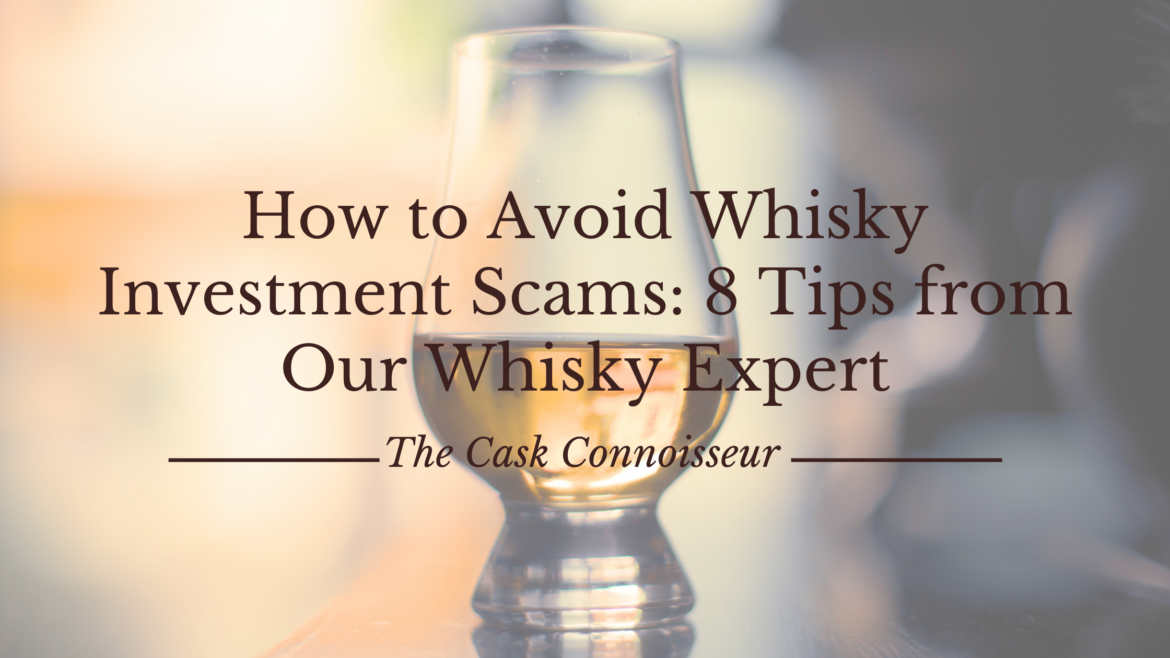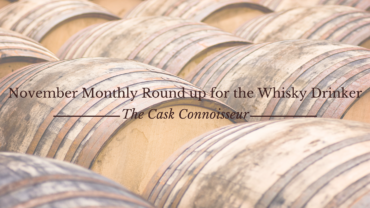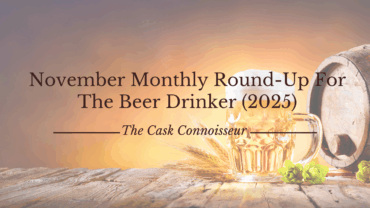The world of whisky investment appears to be booming with some rare bottles and casks fetching staggering sums at auctions. But as whisky connoisseurs and investors look to cash in on the trend, scammers are lurking in the shadows, ready to exploit the unaware. This means that whisky investment scams are unfortunately on the rise. A recent BBC investigation has exposed yet another wave of fraudulent schemes, leaving victims out of pocket and heartbroken.
Chris Walster, our whisky expert here at The Cask Connoisseur, warns: “The golden rule of whisky investment is the same as for the dram in your glass… if it tastes as good as it looks then great, but if it looks too good to be true, it probably is.”
Our recommendation is that you buy a cask for the enjoyment and the experience or to support your favourite distillery. Do not rely on it as an investment.
So, how do you protect yourself from being scammed? Buying a cask of whisky does not necessarily mean that you will end up with the whisky in it. So use caution and check what insurance comes with the cask.
Here are eight brief tips that you need to know before parting with your hard-earned cash:
1. Check the Paperwork Or Risk Losing Everything
A genuine whisky cask investment must come with legal documentation. You should receive at least a Delivery Order (DO) from an HMRC-bonded warehouse or a Bailment Contract confirming your ownership. There are potentially eight separate documents that will come with your purchase. If a company refuses to provide these, walk away or else fall victim to a whisky investment scam.
Walster cautions: “Without the right paperwork, you don’t own the whisky, you own a promise. And in this industry, broken promises can be very expensive.”
2. Demand Transparency: Dodgy Dealers Hide in the Dark
Legitimate whisky investment firms should welcome questions, provide detailed documentation, and even encourage visits to their storage facilities. Be skeptical of any company that refuses face-to-face meetings or gives vague answers about where your whisky is stored.
“Any reputable whisky broker should be happy to let you see the warehouse where your cask is kept. If they won’t, at the very least ask yourself: what are they hiding? Hopefully they have a genuine reason why not” says Walster.
3. Beware of Unrealistic Returns: Whisky is a Slow Burner
Whisky investment scammers often lure investors with promises of guaranteed high returns in a short period. The reality? Whisky investment is a long-term game, with casks typically appreciating over decades, not months.
“If someone tells you they can double your money in two years, ask them why the biggest names in the industry haven’t figured that trick out yet!” jokes Walster.
4. Verify the Company’s Credentials And Look Beyond the Website
A flashy website means nothing if the company behind it doesn’t have a track record. Check for:
- Business registration details
- Industry certifications (WSET, Edinburgh Whisky Academy, etc.)
- Reviews from credible sources (not just hand-picked testimonials on their website)
Also, search for complaints or legal action against the company. A quick online search can reveal a lot. So can asking your friends in your whisky club (if you’re part of one… if you’re not, we would recommend you join one)!
5. Watch Out for High-Pressure Sales Tactics
Genuine investment opportunities don’t require immediate action. If a salesperson pressures you to invest quickly, using phrases like “limited availability” or “act now before prices soar”… it’s a red flag. If you think that the process seemed very rushed, that is not a good sign.
Walster warns: “Good whisky takes time. A good investment should, too.”
6. Ask for Independent Valuation
Scammers often inflate the value of whisky casks. Always seek an independent valuation from a trusted whisky broker or auction house before making a purchase. Checking the veracity of the price from several sources is always worth carrying out. You might even find you get a better deal.
7. Understand Tax Implications: No, Whisky Profits Aren’t Always Tax-Free
Some scammers claim whisky investments are completely tax-free. While whisky casks may not `always be subject to Capital Gains Tax, there are exceptions. Always check with a tax professional before investing thought to avoid a whisky investment scam.
8. Plan Your Exit Strategy: Know What Happens Next
Many investors focus on purchasing a cask but overlook what happens when it matures. A good rule of thumb is that bottling your whisky can cost as much as purchasing the cask itself. Unless you genuinely want hundreds of bottles of whisky, you should research your exit options. Ask about the company’s buy-back policy, resale options, or disposal methods before committing. A reputable firm should provide clear pathways for selling or exiting your investment without unexpected costs.
Protect Your Whisky Investment By Being Cautious
Whisky is a passion for many, but when it comes to investing, emotions should take a backseat to research and caution. The best defense against scams is knowledge, skepticism, and due diligence.
Chris Walster sums it up perfectly: “Whisky is made with patience, and so should your investment decisions. If you wouldn’t buy a bottle without knowing what’s inside, don’t buy a cask without knowing the facts.”
For those looking to invest in whisky the right way, do your research. After all, a dram of well-researched whisky tastes much sweeter than the bitterness of a scam.





